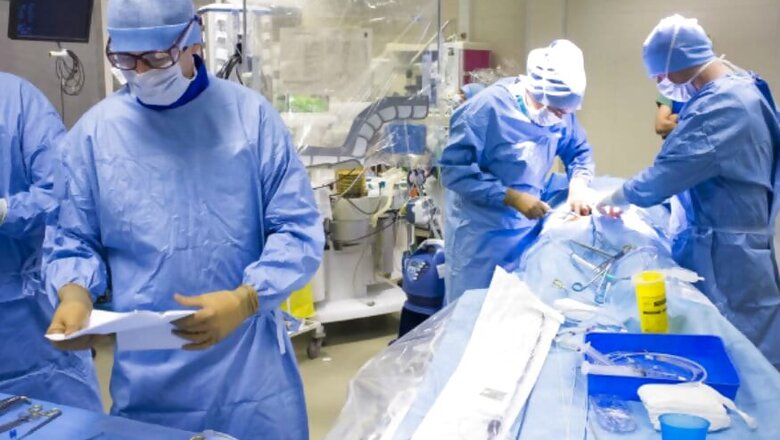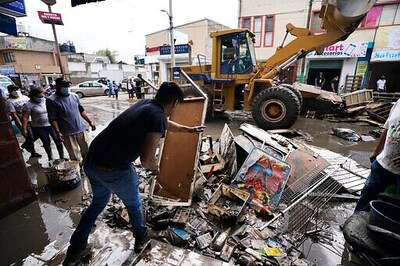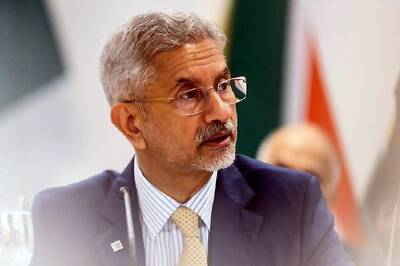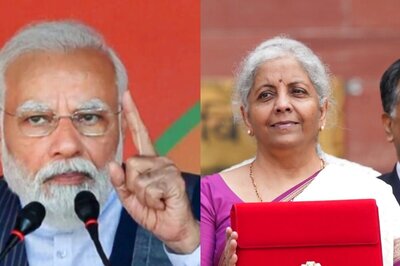
views
New Delhi: The National Pharmaceutical Pricing Authority of India (NPPA) slashed the price of drug eluting stents (DES) from Rs 30,180 to Rs 27,890 on Monday. The move was apparently followed by a stakeholders meeting that raised concerns over no availability of data on the number of angioplasties performed in India along with the bitter pricing battle fought between US-based stent manufacturers and their Indian counterparts.
Monday’s was the second such meeting within a span of two months. It also resulted in the slight increase of the price of bare metal stents (BMS) from current Rs 7,400 to Rs 7,660.
Cardiologists part of the two meetings called for a “compulsory national registry” supported by the government for fair assessment of numbers, outcomes and the relative merits of various technologies” and interventions made by doctors.
Tracing the number of angioplasties performed is necessary not only to determine the number of stents being used and needed in India, but also to curb irrational use.
Experts have time and again raised concerns and alleged that patients are being overcharged for stents. This led to NPPA fixing a ceiling price in February 2017.
However, price fixing allegedly triggered unnecessary use of stents by medical practitioners as a means to make profit for hospitals and doctors.
The NPPA then attempted to collect data on the number of angioplasties performed last year, to see if the price cap acted as a deterrent. “Almost all cardiologists said that unnecessary multi-stenting is an unethical practice... and will be reduced by the price cap,” read the minutes of the NPPA meeting.
The existing register of the Cardiology Society of India (CSI) is voluntary and does not reflect the exact number of angioplasties performed across the country. However, the CSI told the authorities that the data for 2017 will be compiled and made available by May or June 2018.
The MNCs, mostly the United States-based companies and industry bodies such as ASSOCHAM, FICCI and CII, again started rooting for the removal of a price cap and differential pricing for different categories and models of DES.
The MNCs, which make up 60 percent of India’s market, said that “if differential price for DES is not adopted, they may be forced to withdraw their latest generation stents from the market and may not introduce the new generation stents”.
Manufacturers Abbott, Medtronic and Boston Scientific tried the tactic in 2017 but NPPA did not approve their application to withdraw their stents from the Indian market.
The pricing authority decided against differential pricing as there is not enough clinical data to support the MNCs’ arguments.
The latter, however, argued that proving each stent generation’s superiority before the central health ministry was a long process and the relevant clinical data may take years to come through. On the other hand, differential pricing would reward innovation and research and development, they said.
The US manufactures’ stand was however opposed by the Indian stent manufacturers, who said that the price cap had levelled the playing field for them.
Most doctors consulted by the NPPA agreed that there was no difference in quality between the stents made by Indian companies and those by MNCs.
Referring to Prime Minister Modi’s ‘Make in India’ movement, the Indian companies even went on to tell the NPPA that differential pricing would act against the Indian industry.
Their arguments were supported by the civil society too, who said that most generations of DES are the same and MNCs merely changed their brand names to increase prices. Even with the price cap, stents in India are more expensive that those in Germany, the UK, France and Italy, they observed.
As was seen in 2017, the highest mark-up in stent prices was done by private hospitals. They sold stents that were manufactured for an approximate cost of Rs 10,000 for a whopping Rs 2 lakh.
The Hospital and Nursing Home Association argument was that these price margins helped them recover the money they used in the construction and functioning of the healthcare facilities. The hospital authorities said the price cap has forced them to change their business model and make other procedures more expensive. A loss in profits for the private sector, which handles 70 percent of the country’s healthcare, as the Association said, would adversely impact healthcare in Tier-II and Tier-III cities.


















Comments
0 comment